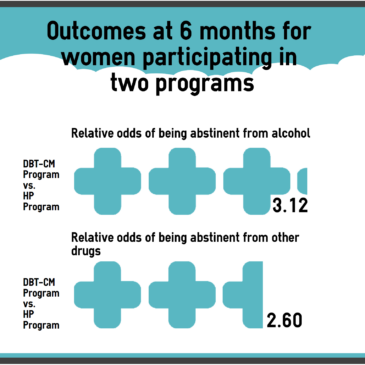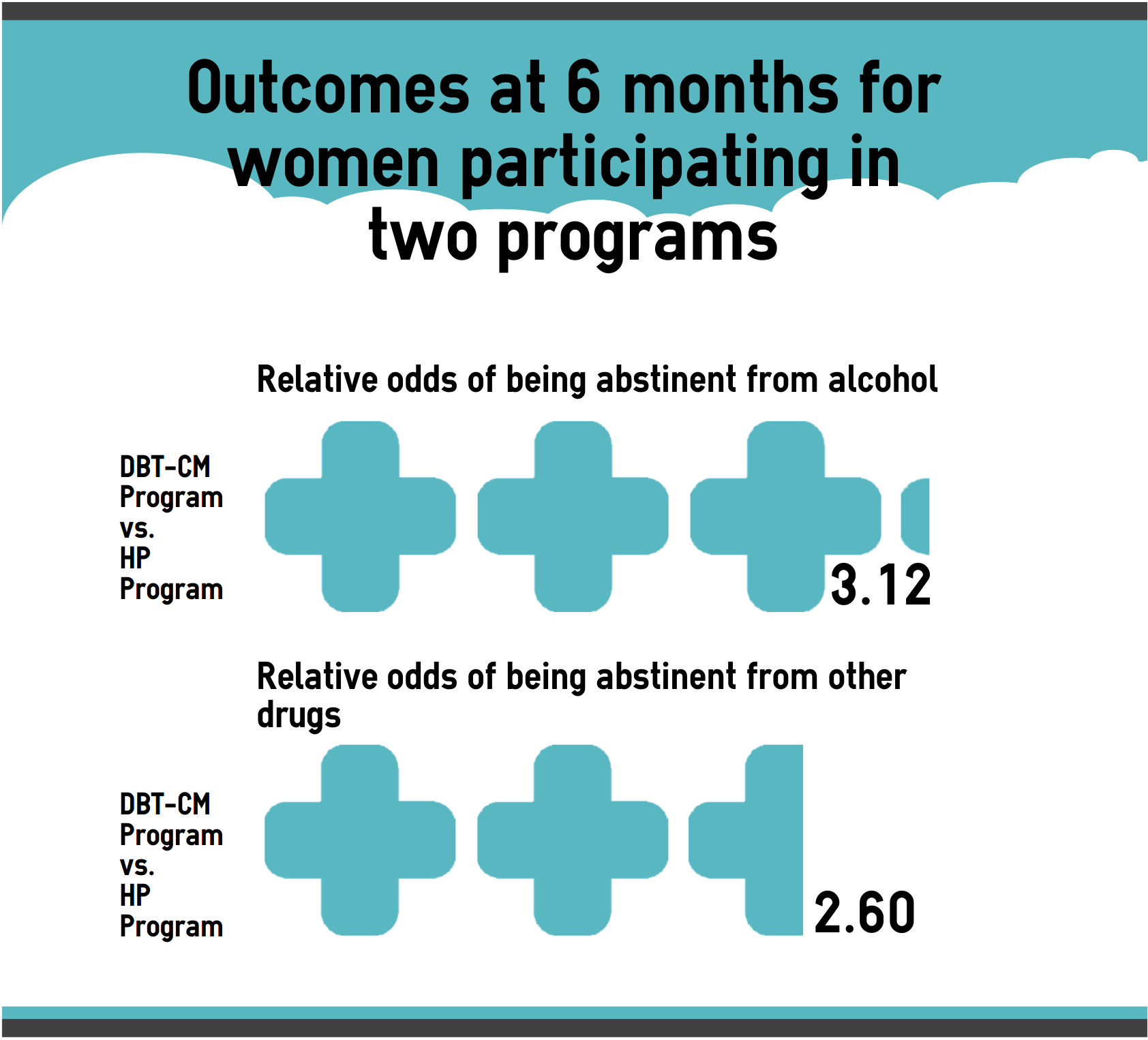For recently incarcerated women experiencing homelessness, substance use and recidivism are often barriers to successful re-entry to society, and there are only a few gender-sensitive programs to help them address problems. Dialectical Behavioral Therapy (DBT) is a treatment that helps people to develop skills to manage emotions, navigate relationships, and become more mindful. It has been used successfully in prison settings, including in a study focusing on incarcerated women. As part of this month’s Special Series on Addiction and Homelessness, The DRAM reviews a study by Adeline Nyamathi and her colleagues that examined the efficacy of a new DBT treatment program designed to help women ex-offenders who are homeless abstain from alcohol and drug use.
What was the research question?
Is this specially-developed Dialectical Behavioral Therapy-Case Management program an effective treatment for recently incarcerated women experiencing homelessness?
What did the researchers do?
The researchers developed two programs for the target population: a Dialectical Behavioral Therapy-Case Management (DBT-CM) program, and a Health Promotion (HP) program to discuss common chronic diseases. These programs were developed with the consultation of various experts and community stakeholders, and were evaluated by conducting focus groups with recently incarcerated homeless women.
One hundred and thirty women participated in this study. These women had all previously used drugs and had been experiencing homelessness before their recent release from incarceration. After completing a baseline survey that included questions about their alcohol and other drug use (e.g. marijuana, cocaine, opiates), participants were randomized: half of the women took part in the DBT-CM program and the other half went through the HP program. After six months, the women were surveyed again.
What did they find?
As shown in the Figure, women who took part in the DBT-CM program were significantly more likely to be abstinent from alcohol and other drugs at follow-up than women who had completed the HP program.
Figure. The figure illustrates the odds ratio of abstinence related outcomes for women who participated in the DBT program compare to the HP program. More crosses indicate a greater likelihood of that outcome. Click image to enlarge.
Why do these findings matter?
Substance misuse is often a particular concern for people experiencing homelessness, both as cause and consequence of lack of housing. Women who experience homelessness also face unique challenges that are less common for homeless men. Given the particular difficulties that this population faces with traditional treatment programs, creating specially adapted interventions is important to help meet the needs of these women.
Every study has limitations. What are the limitations in this study?
Although measures of drug use abstinence at six months were corroborated using urinalysis, measures of alcohol abstinence were determined entirely by self-response, leaving the finding regarding alcohol abstinence open to self-report bias. Furthermore, one finding from the study was that being of non-White race/ethnicity was correlated with a reduced likelihood of achieving drug use abstinence at six months. Considering that homelessness disproportionately impacts minority populations, this might suggest that the DBT-CM program in question, while already adapted for a recently incarcerated homeless female population, could be further improved upon or expanded to better benefit minority women.
For more information:
The SAMHSA website includes immediate assistance resources for homelessness and other issues. Additionally, The BASIS Addiction Resources page includes screening tools and self-help guides for anyone concerned about addiction.
— Rhiannon Chou Wiley
What do you think? Please use the comment link below to provide feedback on this article.





